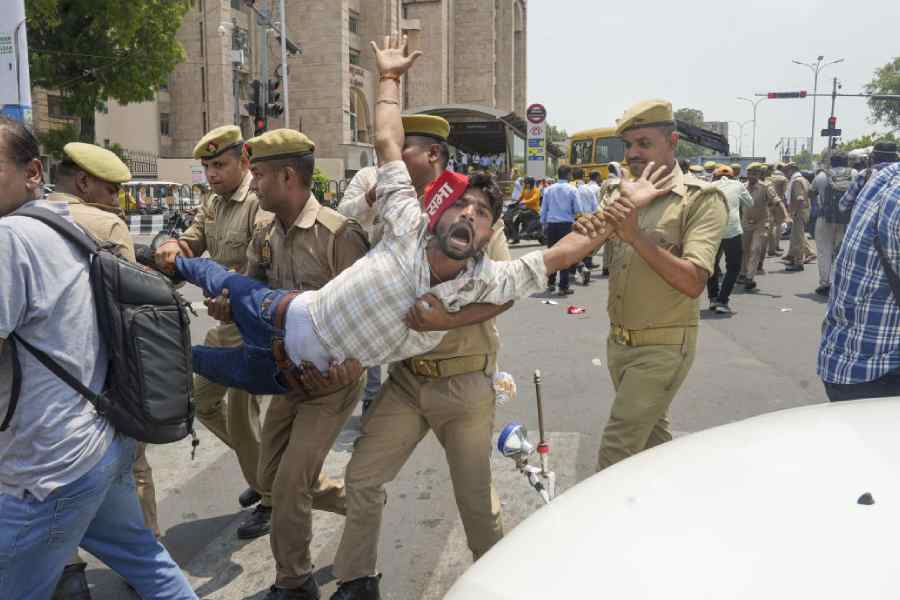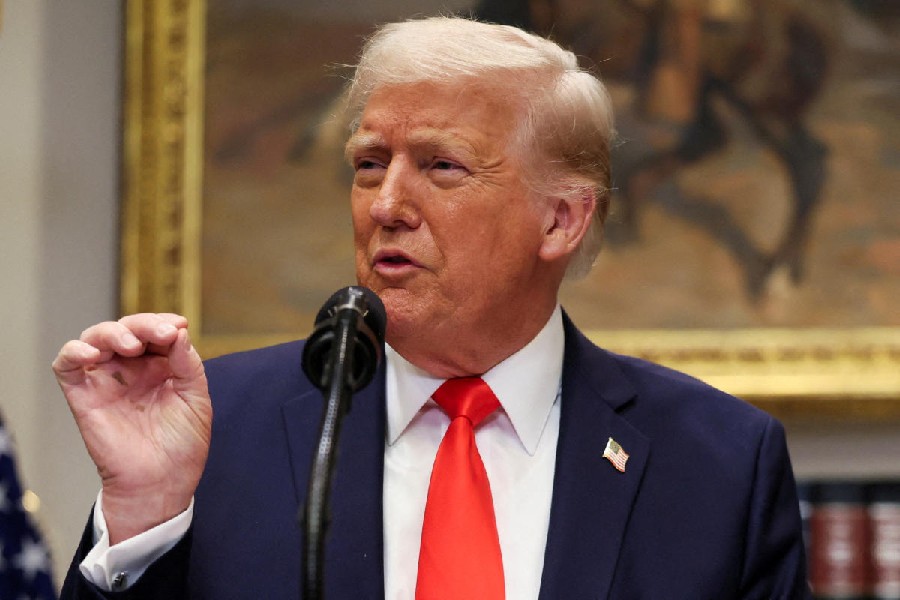The maiden attempt by the National Testing Agency (NTA) to impose a nationwide exam for admission to PhD programmes in universities across India, vitiated by its cancellation, has resurrected allegations that the Centre has infringed on the varsities’ autonomy.
Sections of faculty in top universities have said the National Eligibility Test (NET), conducted by the NTA on June 18 and swiftly annulled on June 19, represented an attempt by the Centre to usurp the autonomy of universities through an agency that has been shrouded in opacity.
The Centre cancelled the NET June 2024 exam after the Indian Cyber Crime Coordination Centre flagged a paper leak. Over 900,000 candidates had taken the exam, either for PhD admission or for recruitment to a college as assistant professor.
Union education minister Dharmendra Pradhan labelled the development an “institutional failure”, raising doubts within academic circles about the NTA’s competence to conduct such high-stakes exams.
Faculty members from various prestigious universities criticised the University Grants Commission (UGC) for mandating the NET as the sole entrance exam for PhD admissions earlier this year without consultation with key stakeholders.
“The UGC did not consult either universities or faculty groups on either that single-exam decision or on the format of the question paper,” said Ayesha Kidwai, a professor at the School of Languages at Jawaharlal Nehru University, New Delhi.
“At the behest of the government, the NTA and the UGC have snatched away the autonomy of institutions and pushed our universities to perish.”
Several faculty members are concerned about the NET’s format.
The NTA-designed NET involves only multiple-choice questions, in contrast to the other exams conducted earlier by the states or universities that had a combination of multiple-choice and long-answer questions.
“Such (multiple-choice) questions are not adequate to assess the depth of knowledge and aptitude of candidates for research,” said Nandita Narain, former head of mathematics at St Stephen’s College, New Delhi.
Kidwai said a centralised admission process involving a uniform entrance exam denies universities the opportunity to select candidates that they assess as “best matches” for teaching or research in the universities’ specific areas of focus within subjects.
The Narendra Modi government established the NTA in 2017 to serve as a single agency to conduct tests for entrance into engineering, medical and management institutions, among others. Many academics have, however, questioned the composition of the NTA and its competence to perform these tasks.
“From what some of us understand, the NTA has zero checks and balances as well as virtually no public scrutiny of its actions,” a professor of physics at an Indian Institute of Science Education and Research told The Telegraph, requesting anonymity.
“This is a dangerous state of affairs, considering that careers of young people are at stake — these examinations determine their career trajectories,” the IISER professor said.
“The composition of the NTA is also determined entirely by the government with no inputs from anyone. The agency’s structure precludes any discussions about external inputs.”
Kidwai said the NTA’s audited accounts and its memorandum of association are not available on its website.
“The operation of the NTA is opaque. The government wanted to create such an opaque body to push its agenda of having complete control over institutions. As a result, the institutions are perishing,” she said.
Kidwai said that foreign universities that have excelled in teaching and research are not bound to take in students based on any single entrance exam. These foreign universities are free to accept or ignore the entrance test scores of students while granting admission.
“They enjoy full freedom in deciding whom to admit,” Kidwai said.
The JNU Teachers Association has said the cancellation of the NET would disturb the academic calendars at educational institutions. The delay in PhD admissions will be difficult to make up.











